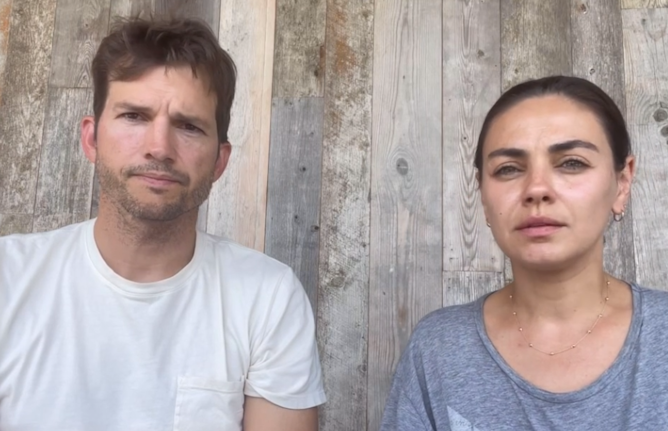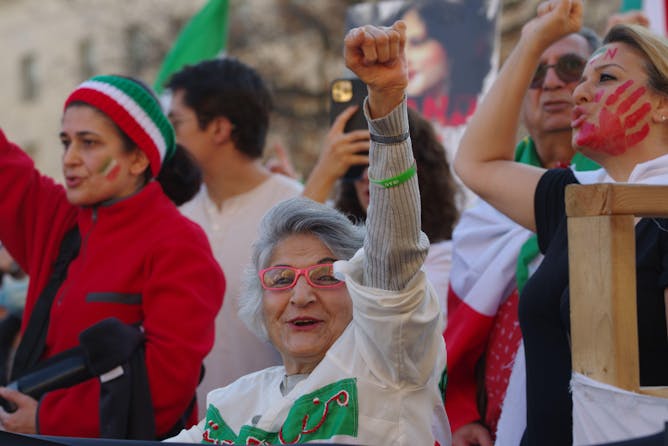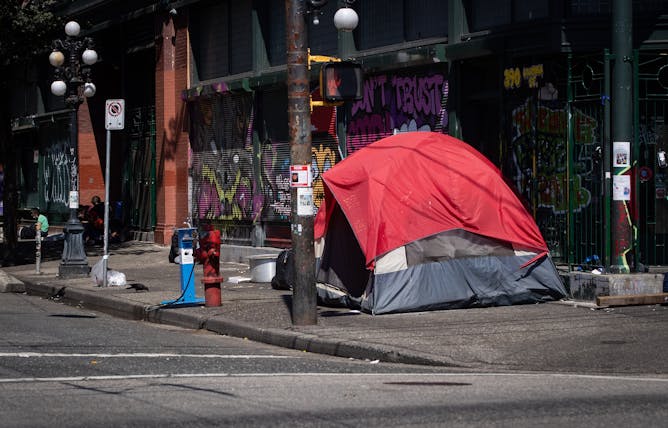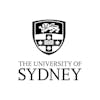|
Spring has come this year, as welcome as always. But even as we get out and enjoy the sunshine, many Australians already have one eye on what looks to be a seriously hot summer.
We read the news about what happened during the northern summer. Watched the videos of evacuations off Greek islands, water bombers in Canada, intense heatwaves in tourist hotspots around the Mediterranean. And we knew our turn in the sun would come.
The drumbeat of climate change is beating faster. This year, the heat really is on.
And that, Victoria University researchers say, means it is time to prepare. La Nina’s rain is gone and swathes of Australia are drying. This summer is likely to see grassfires and scrub fires. And heatwaves are likely to be back.
Preparing for an angry summer means planning ahead. If there is a heatwave, is your house ready? Or do you plan to wait out the scorchers in a library or mall? What if there’s a fire nearby – do you know what you’d take? How you’d make sure all of your loved ones can get out safely? What if the main road is cut – what will you do then?
That old Australian adage of “she’ll be right” is, unfortunately, no longer fit for purpose. Plan, prepare, protect is less catchy. But far better suited to our times.
|

|
Doug Hendrie
Deputy Environment + Energy Editor
|
|

Celeste Young, Victoria University; Nima Izadyar, Victoria University; Roger Jones, Victoria University
The northern summer was marked by intense fires and heat. Now it’s our turn to face the heat.
|

Paul Kildea, UNSW Sydney
From a legal standpoint, there is a difference between a state and a territory, and for some that justifies giving territory voters less say over changes to the national constitution.
|

Trevor Mazzucchelli, Curtin University; Bruce Tonge, Monash University; Kirsten Baird-Bate, Queensland University of Technology; Sharon Dawe, Griffith University
Parents are their child’s first and most important supports. Parents and carers of children with disability need help to maximise this relationship – and the NDIS should provide it.
|

Keiko CP Bostwick, UNSW Sydney; Andrew J Martin, UNSW Sydney; Emma Burns, Macquarie University; Rebecca J Collie, UNSW Sydney
Our study – based on a survey of more than 70,000 NSW high school students – looked at what impacts upon their ‘academic buoyancy’.
|

Adrian Barnett, Queensland University of Technology; Nicole White, Queensland University of Technology
Many diagnostic tests are far from 100% accurate – and even in the era of big data and machine learning, they never will be.
|

Nadhir Al-Ansari, Luleå University of Technology
Dams are usually built to withstand heavy rainfall or drought.
|

Meredith Ralston, Mount Saint Vincent University
In letters to the judge, Ashton Kutcher and Mila Kunis asked for Masterson to be shown leniency based on his supposedly good character.
|

Afshin Shahi, Keele University
People are gearing up for a potential resurgence of protests, while the state is preparing to suppress any sign of dissent.
|

Jiaying Zhao, University of British Columbia; Anita Palepu, University of British Columbia; Daniel Daly-Grafstein, University of British Columbia
Researchers found that most homeless people spent the money they received on rent, food and other living costs.
|

Paige Donaghy, The University of Queensland
In my research, I try to uncover the cultural significance of the placenta and afterbirth in premodern Europe to help us better understand the social and medical history of this important organ.
|

Carissa Lee, The Conversation
We asked readers what they would like to know about the Voice to Parliament. We’re asking our experts, and will post their responses here.
|
Health + Medicine
|
-
Clare Collins, University of Newcastle; Tracy Burrows, University of Newcastle
Thinking about food all day, feeling guilty when you eat, not knowing when you’re actually hungry: these could be signs you need to work on your relationship with food.
|
|
Environment + Energy
|
-
Cameron Allen, Monash University; Shirin Malekpour, Monash University
Our research shows the world is not on track to achieve any of the Sustainable Development Goals. But with decisive action, we can still achieve a fairer, more sustainable and prosperous future.
|
|
Education
|
-
Christine Braid, Massey University
For many educators, structured literacy is a step in the right direction to improving New Zealand’s falling literacy rates. But educators need to remain adaptable as the science of reading evolves.
|
|
Arts + Culture
|
-
Adam Gerace, CQUniversity Australia
We can feel bereaved at the loss of the relationships we build with our favourite characters.
|
|
Books + Ideas
|
-
Carl Rhodes, University of Technology Sydney
Multinational corporations can dictate how resources are allocated, territories are governed, and justice is defined.
-
Marguerite Johnson, The University of Queensland
Martin Puchner’s engaging new history argues that every culture has its backstory of influences
|
|
Business + Economy
|
-
Tim Harcourt, University of Technology Sydney
Japan’s “lost decades” of near-zero economic growth began when its economy looked eerily similar to China’s today.
|
|
| |
|
|
|
NIDA
Kensington NSW, Australia
•
Full Time
|

|
|
Auckland University of Technology
Auckland, New Zealand
•
Full Time
|

|
|
|
|
| |
| |

|
| |
| |
| |
Featured Events, Courses & Podcasts
|
View all
|
|
1 January 2023 - 7 October 2026
•
|

|
6 July - 6 October 2023
•
|

|
21 September 2023
•
Sydney
|

|
19 October 2023
•
Clayton
|

|
|
|
|
| |
| |
| |
| |
| |
|
|